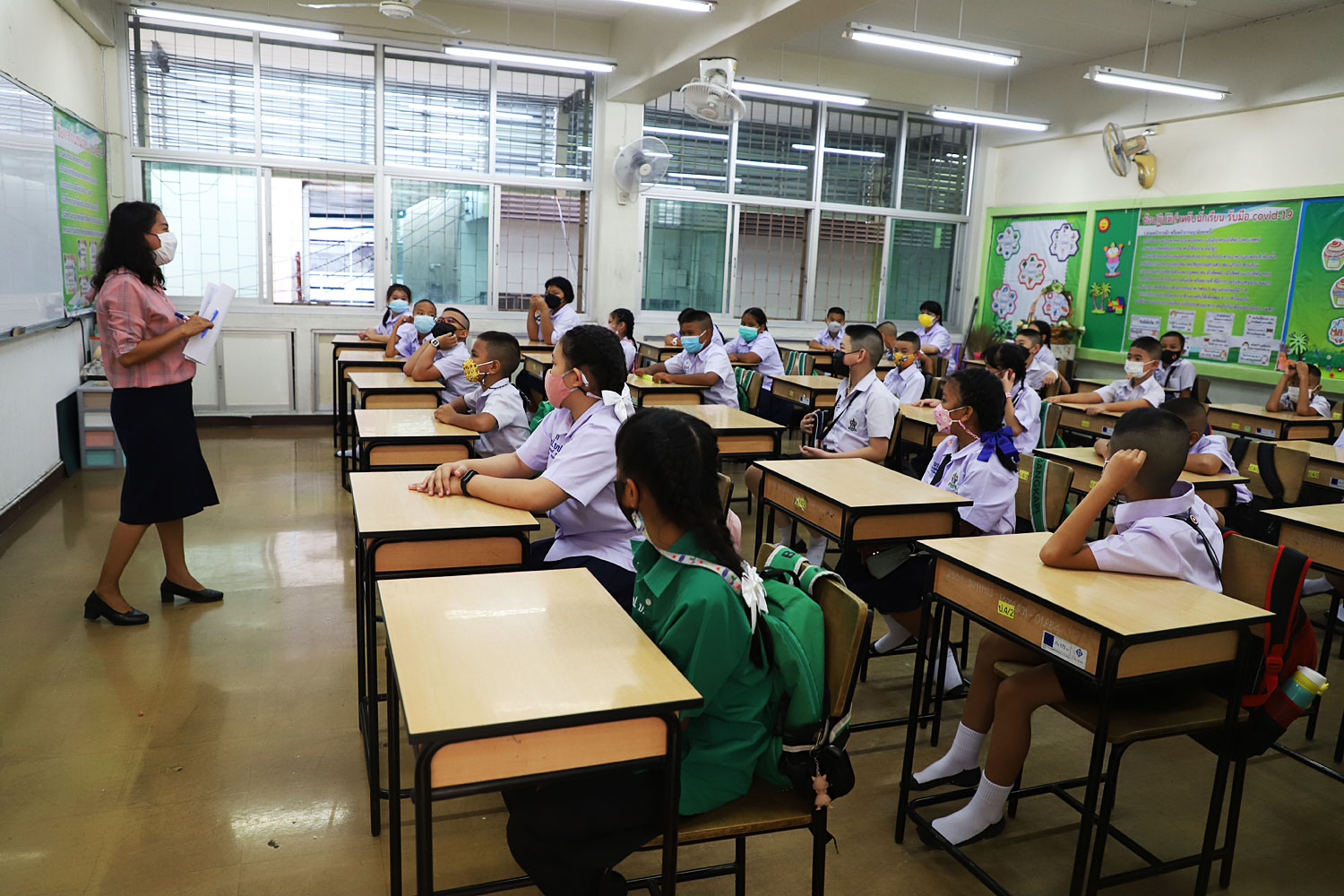
Why doesn't education in Thailand improve, just like the quantity of research in education? Because it is the quality, and not the quantity, of research that makes the biggest impact on the lives of students.
Here, I'd like to focus on the culture of conducting educational research in Thailand that widens the gap between real problems and solutions.
First, only a specific research design is prevalent in educational communities. In Thailand, newcomers in the field of education (pre-service and in-service teachers, and graduate students in the School of Education) quickly learn about quasi-experimental research, where students are exposed to certain teaching methods referred to as "treatment", and their learning improvement is tracked afterwards.
Most educational research titles follow this pattern: "The Effects of X on Y." While this design helps teachers assess the effectiveness of certain teaching methods in their specific classrooms, it leads researchers to oversimplify student learning problems.
Any teaching strategy or adaptation in teaching often yields positive student outcomes, implying a multitude of solutions for teachers to choose from.
It's as if all they need to do when conducting educational research is to select a solution, track students' progress, and that's it. This isn't to suggest that teachers select solutions randomly; they usually review literature and make an informed guess about the selected teaching approach's potential effectiveness.
Nonetheless, this research approach assumes that student learning problems can be easily solved and that students consistently improve with changes in teaching. This oversimplification obscures the complexities inherent in educational issues.
Secondly, Thais are not accustomed to acknowledging failures, and this tendency extends to how researchers discuss only positive research findings.
Changing this pattern of exclusively highlighting positive results is crucial for genuine learning from failures -- a key to success in education. Currently, no research articles written in Thai delve into the details of students' or teachers' learning failures.
Suggestions for improvement in case others pursue similar research are usually briefly mentioned in the "Suggestions for Future Research" section -- the final section mandated in many Thai journals.
Moreover, these suggestions are often disregarded by other Thai researchers due to their brevity and opinion-based nature, lacking empirical support from the same articles. The culture of exclusively presenting positive findings conceals the intricate problems and challenges within Thai education.
Thai scholars often feel isolated in facing challenges, as they cannot find similar issues discussed by their Thai peers. Consequently, they hesitate to share their setbacks, perpetuating this cycle. This approach also fails to foster strong connections among Thai scholars and inhibits collaborative efforts to create a genuine impact on specific issues.
Thus, the Thai educational publication realm must encourage negative findings from scholars, allowing them to freely voice their opinions. This openness will likely lead to innovative solutions that can improve Thai education in the long term. It's time to confront our failures directly and learn from them courageously.
Lastly, there is a strong cultural inclination for both newcomers and established Thai researchers to adhere to specific structures in research reports and to present themselves in a certain "favourable" manner on paper. This phenomenon stems from powerful figures (such as professors) in Thai education evaluating research quality based on writing styles and structures, rather than the content's merit.
To test this, one can easily pick a Thai article of interest and observe if it conforms to some of the patterns I'm about to describe.
In the typical and arguably accepted approach to writing the "Introduction" in the Thai education field, authors begin by addressing global education issues. They then provide data to demonstrate that the same issues are present in Thailand and conclude by explaining how certain teaching and management methods could enhance the situation.
Occasionally, the rationale originates from the researchers themselves, but often it's simply because the methods have worked for other researchers in different contexts.
Why can't researchers have confidence in their own insights without referencing problems from other countries? Can't Thai researchers be pioneers in addressing uniquely Thai problems that have not been discussed before?
The "Literature Review" section often commences with the definitions of keywords (eg, critical thinking, problem solving) provided by existing global research. Thai researchers then create a comprehensive definition by amalgamating these previous definitions and employ it as their operational definition in their research. Rarely is anything truly innovative introduced at this stage.
The "Research Methodology" section frequently follows the same quasi-experimental research model. Finally, the "Results" confirm the hypothesis proposed in the "Introduction".
The mechanism behind the effectiveness of specific teaching and management methods is seldom explained. In the "Discussions" section, researchers often affirm how their research aligns with existing literature. Everything seems flawless on paper, even though this template might not mirror reality.
It's time for influential figures in Thai education to grant creative researchers the freedom to think beyond these constraints and urge them to approach research differently. The perception that research (as presented in written reports) and practice are distinct must be challenged. If researchers don't value their own research, how can the Thai public value educational research? How can educational research truly impact Thai students and the education system?
Culture can hinder change, but it can also serve as the starting point for change. We must transcend our practices and focus on innovative approaches.
Sara Samiphak is an assistant professor at the Faculty of Education, Chulalongkorn University.